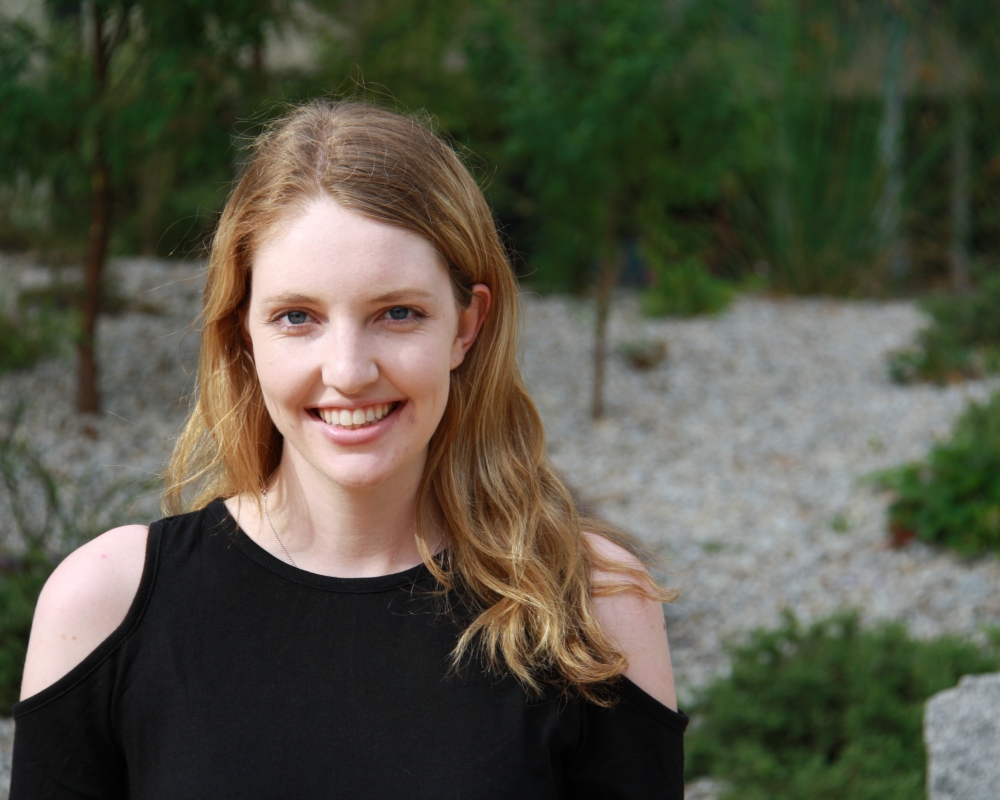By annamuscara
2018-04-222018-04-22https://rhed.amsi.org.au/wp-content/uploads/sites/73/2020/06/amsi_rhed_v2-2.pngResearch and Higher Educationhttps://rhed.amsi.org.au/wp-content/uploads/sites/73/2020/06/amsi_rhed_v2-2.png200px200px

Kim Becker completed a Bachelor of Advanced Mathematical Sciences at Adelaide University in 2017. She is currently undertaking a Master of Philosophy in pure mathematics at Adelaide University, under the supervision of Prof. Michael Murray and Prof. Daniel Stevenson. Her research focuses on bundle gerbes, which provide a geometric representation of degree three cohomology. After completing her masters degree, Kim hopes to do her PhD overseas and pursue a career in academia. Outside of mathematics, Kim is also passionate about creating a diverse mathematics community, and has recently founded a Women in STEM Society at Adelaide University.
Can you give me a quick overview of the type of mathematics you are studying and its potential impacts for the broader community
In my masters research I study an object in differential geometry called bundle gerbes. These have many applications in string theory.
You received a CHOOSEMATHS Grant to assist your attendance at AMSI Summer School 2018. How important was this in terms of your ability to attend and fully participate in the sessions throughout the program?
The CHOOSEMATHS program allowed me to enjoy the AMSI summer school to its fullest without any financial stress or burden.
How important are initiatives such as the CHOOSEMATHS Grants in terms of fostering the participation and achievement of women in mathematics, particularly in terms of access to networking opportunities and further training opportunities?
The CHOOSEMATHS grant is a fantastic way to encourage young female mathematicians to continue their studies and network with one another.
In what ways has the experience impacted your maths studies? Has it influenced the direction of your research?
This experience has solidified my love for pure mathematics. Upon returning to my home university I feel invigorated for more study!
What was the most valuable part of AMSI Summer School 2018 for you in terms of furthering your career in mathematical sciences?
The most valuable part of the AMSI Summer school in terms of furthering my career in mathematical sciences was forming a relationship with new lecturers. It is crucial for future applications to have references from lecturers from other universities other than my home university. I found it interesting to see different teaching styles than those at my home university and to meet new lecturers has helped me build a national network.
A presentation on the AMSI Intern program was included as part of the Careers Afternoon. One of the aims of the AMSI Intern program is to maximise employability and help prepare research graduates to drive industry/private sector research. Are you hoping to work with industry? How important is this experience for researchers? Particularly in terms of offering career flexibility for women?
Although I do not hope to work with industry, I was still impressed by the AMSI intern program and the fantastic opportunities it can open up to students. In particular it is a great way for women to network and find career opportunities.
The CHOOSEMATHS Grants are part of a broader program being delivered by AMSI Schools with support from BHP Billiton to turn the tide on Australia’s maths deficit and strengthen maths education and participation of women across the discipline. What do you see as the big challenges facing maths in Australia, particularly for women?
There is no one challenge that female mathematicians face – rather, a wide array of challenges, making these issues all the more difficult to tackle. There are, of course, the societal issues. Often there is a misunderstanding as to what maths careers involve or a stereotype as to who should study mathematics. Not only is there an issue of getting women into maths, but the problem continues with keeping women in maths. As a student, I cannot presume the difficulties professional female mathematicians face. However, as a female mathematician hoping to become an academic, I can already see why women my age have been deterred from this career. Often I find the lack of diversity in my environment can be isolating and I feel disheartened for the future of women in maths. Moreover, the sheer time it takes to become an academic can also be a deterrent, especially for women wanting a family. However, with programs like choose maths, I start to feel optimistic that of this can change. It feels like people are beginning to acknowledge these issues a lot more and are trying to make the maths community more conducive for female mathematicians.
Did you always want to pursue a career in maths? Were you encouraged to study these subjects at school? Do any particular mentors come to mind? Any outstanding teachers?
Although I my mathematics ability showed itself rather early on, I was in fact not encouraged to peruse a career in maths – rather, a career in medicine or dentistry. I believe this is due to a lack of understand of what mathematics careers entail, and career gender stereotyping. In year twelve I had no idea what I wanted to study, and simply chose to study my favourite topic, maths. In all honesty, I believe I would do a postgraduate degree in something more “practical” – little did I know mathematics is one of the most practical degrees one can study!
Where do you see yourself in five, ten years time?
In ten years time I hope to have completed by PhD in pure mathematics and to be a lecturer at a university, inspiring young female mathematicians to pursue their careers to the fullest.
Any other feedback/comments you would like to provide on the CHOOSEMATHS grant or AMSI Summer School 2018?
Programs like the CHOOSEMATHS program and WIMSIG conference have made me passionate about the topic of diversity in mathematics. Recently I have founded and become president of a new society at Adelaide University called the Women in STEM Society, which aims to support current female students in STEM as well as encourage the next generation of female students into STEM.